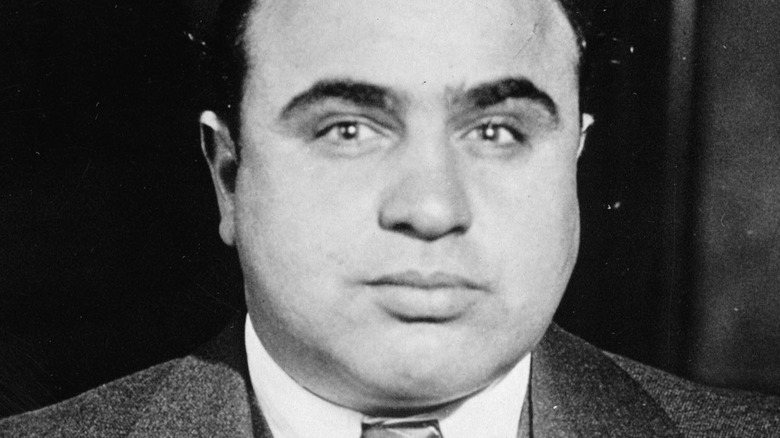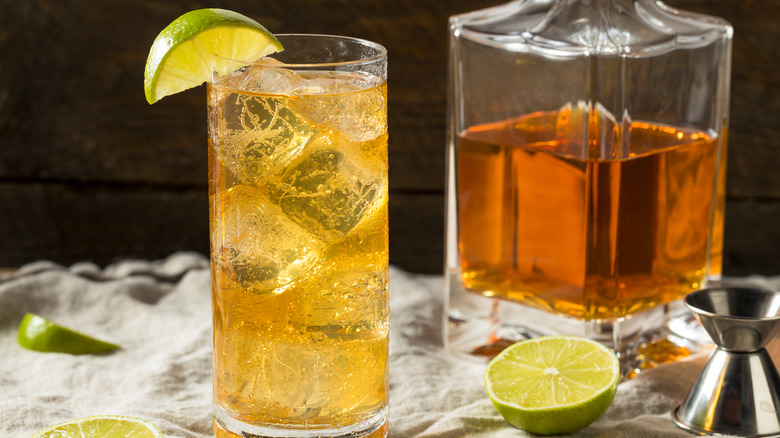Al Capone Was Once In The Ginger Ale Business
Alphonse "Al" Capone was one of the most notorious gangsters in American history. A sixth-grade dropout with an honorary Ph.D. in thuggery, Capone was born in Brooklyn in 1899 and eventually made his way to Chicago in the Roaring Twenties, according to the U.S. Federal Bureau of Investigation. There, he committed crimes like it was his job — which just so happened to be the case. The infamous mob leader was known for carrying out numerous illegal acts, including but not limited to tax evasion, bootlegging, and even murder.
During the Prohibition Era, which banned the production, transportation, and transaction of alcohol across the country, Capone took full advantage of the forbidden intoxicant industry. Per History, he is reported to have made upwards of $100 million from forbidden booze sales in the '20s. However, there was another drinkable product Capone invested in that also allowed him to rake in money.
Ginger ale, which is often enjoyed by itself or mixed into cocktails such as the Moscow Mule and the Pimm's Cup, was yet another line of work in which Capone got his hands dirty.
Al Capone ran ginger ale bottling plants
Since alcoholic beverages (with the exception of whiskey) were prohibited outside of the home between January 1920 and December 1933, soda and other nonalcoholic drinks skyrocketed in popularity. Ginger ale, for one, was heavily consumed in combination with alcohol throughout Prohibition, according to The Atlantic. The brand Canada Dry witnessed some of its most impressive profits since its market debut a little over a decade prior. Notably, the soda could cover up the flavor of illegally produced booze.
So, here's where the scandalous gangster enters the picture. Al Capone and his older brother Ralph, cunning as they were, decided to throw a few of their cards into ginger ale and club soda bottling plants in the Windy City during Prohibition in an effort to gain control over the mixer market. According to WXPR, that's why Ralph was nicknamed "Bottles" Capone. The brothers' bottling business was used to launder a bunch of money, which is presumably one of the reasons Chicago authorities named Ralph as Public Enemy No. 3. (Al would earn the top spot on the Public Enemies list.)
To this very day, nearly a century after Prohibition lifted, bars pay homage to Al Capone through nightcap recipes. Some might even call for the spicy-sweet, effervescent drink that he capitalized on. Among them is Fairmont Grand Del Mar's Al Capone Holiday Cocktail, a concoction that combines bourbon, balsamic vinegar, simple syrup, and of course, ginger ale (via La Jolla Mom).

